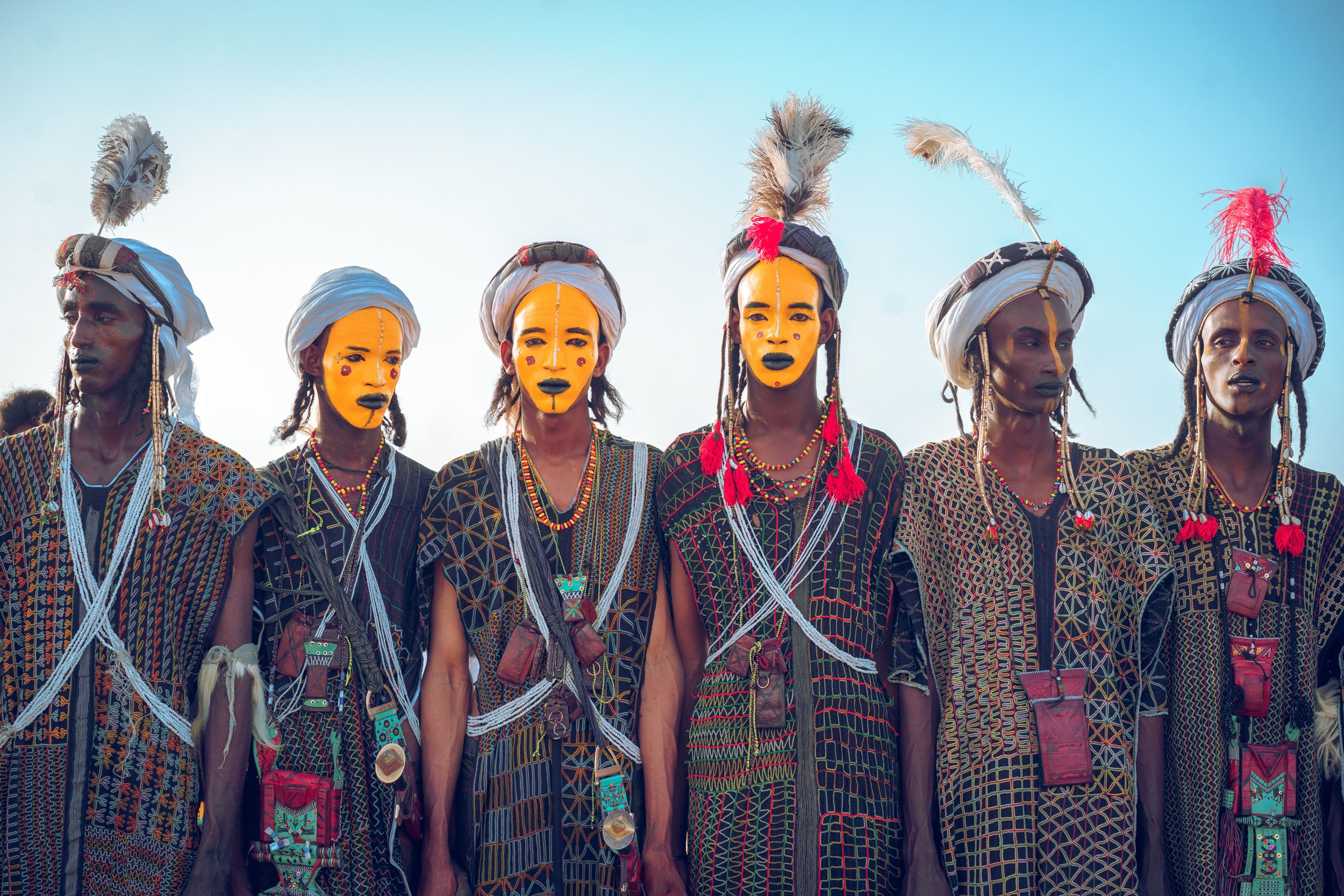The idea of home, or homeland, is typically premised on the notion of an original setting, a place, or a beginning - like the root of a plant. It's where one is from and/or belongs initially. In a contemporary context, home is typically associated with a physical location - most commonly a house. But increasingly, these notions of home have been complicated as people associate home and homeland with where their families are (in the present), not where they have been. Together, we understand that Home is More than a Place. Definitions of the home have been expanded, in part, by necessity - as enslavement, colonization, and displacement disrupt ties to land, place, and heritage. These expanded understandings also recognize that the many indigenous societies of pre-colonial Africa were typically nomadic, thus requiring them to develop diverse and transcendent ideas of homeland. Globalization, and the subsequent connectedness it facilitates, adds to these understandings as people move or have been moved and develop vastly different lives from those before them. In this setting, Africans in Africa work to maintain a sense of home, despite sustained disruption. Meanwhile, across the diaspora, the vestiges of Africa are dispersed throughout - food, language, dance, religion - while its descendants try to make meaning of its remains.
Pan-Africanism became significant, historically and to-date, as a direct response to the disruption, destruction, and displacement caused by enslavement and colonization of Black people in Africa and the diaspora. It was a way of recognizing harm that has been done, the ways that people have moved forward, and the clash that results from bridging this violent past with the present and toward the future. Perhaps most notably, it asks and answers the question of “Where is the home of Black African people?”
Pan-Africans reclaim “Africa” as home while recognizing that Africa today was never the original home of any people - as it is, at least in name, a colonial construction. In other words, Pan-Africanism is a call to home, but there are no original places for which its followers may return. Still, the desire to reclaim Africa as home is a simultaneous recognition of this colonial imposition, and a reassertion of Black dignity and humanity, regardless. It does not take for granted the ways that these groups who are called Black have been constructed as less than and thus have had to reconstruct themselves as equal.
Since Africa was arbitrarily cut into pieces by Europeans at the Berlin conference of 1884 with no respect to the culture and the life of those communities beforehand, home is complex for the Africans. For an extended period, being African or Black was like being unhoused. Pan-Africanism attempted to create a home from these pieces or rather their remnants. It was a call for unity among those sliced up and left for dead. It was for the oppressed against imperial oppressors.
More formally, Pan-Africanism dates back to the 19th century. A series of congresses took place between 1900 and 1953 across Europe and then Africa (primarily led by George Padmore of Trinidad, Kwame Nkrumah of Ghana, and W.E.B. Dubois of the United States). The initial conference was held in London, and its focus was on “African native races under European and American rule.” It started as a call for unity against colonization as a step towards racial and economic emancipation. Pan-Africanism wasn't just cultural, it was political.
Emancipation complicated the goal of its pioneers. Today, we often see Pan-Africanism upheld through food, dance and non-political musical exchange between cultures. Meanwhile, the vestiges of colonization remain, forcing us to ask what we can gain from pan-Africanism in this political moment? More specifically, how can Pan-Africanism facilitate the provision of adequate housing to those who are persistently poor and thus physically un, or under, housed (as opposed to the rampant development of unaffordable condos by foreign investors)? How can it create safe spaces for LGBTQ+ populations in our legislation in Ghana, Uganda, and elsewhere as a testament to our shared humanity? How can it help us to attain true socio-political freedom from white supremacy and neocolonialism (rather than remain reliant on multilateral aid with high-interest rates and unfavorable terms)? How can we create an anti-capitalist future that transcends borders (rather than one built on its core principles of profit, extraction, and nationhood)?
Nearly a decade after Ghana’s independence in 1965, President Kwame Nkrumah published the book, “Neocolonialism: The Last Stage of Imperialism” raising some of these very same questions. Perhaps unsurprisingly, the publication was followed by correspondence from the U.S. State Department denouncing his claims and an immediate cancellation of 25 millions U.S. dollars in American AID to Ghana. The United States actions sent a clear message to Ghana’s first President that The West was uninterested in contending with their role in the post-colonial failures of African countries - no matter how much they remained entangled in their affairs.
Undoubtedly, foreign entanglements in African Affairs persist today. We acknowledge them and the seemingly impossible odds they place against those most marginalized among us. And yet, we also understand that these challenges are ours to overcome. In the end, Pan-Africanism is a call to the saying that “there is only one color - that of African Unity.” From this perspective, African unity is a potentially powerful response to contemporary ills. It is a recognition that we, Africans, are no less capable of dealing with these ills than anyone else. In sum, if any people have the ability to create a better, equitable life for us, it is we. And if our home is more than a place, we shall.


